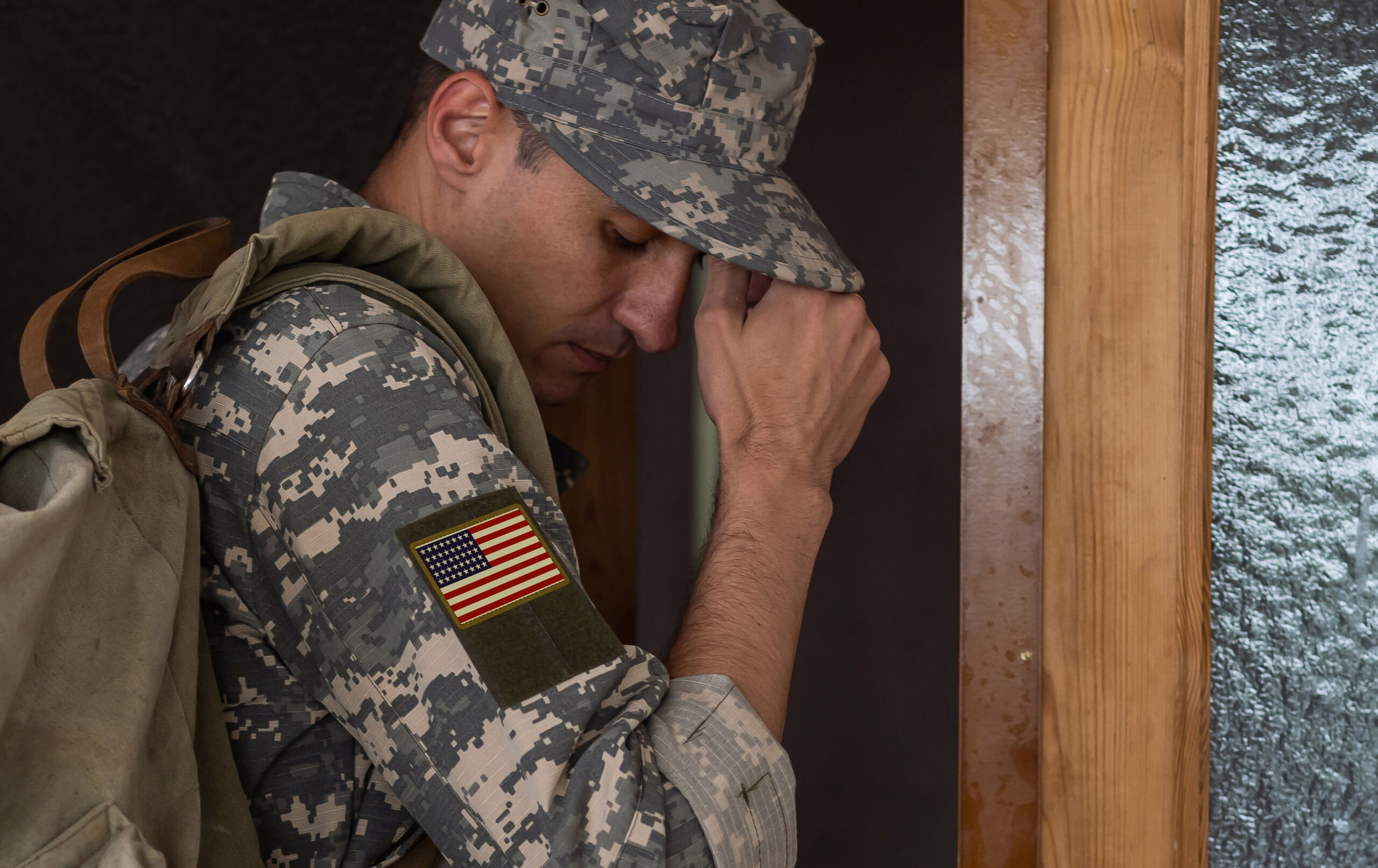”Question: How do drugs and alcohol affect military Veterans and what support is available?
Reading time: 5 Minutes
MWi Hack:
- Create a “battle buddy” system for recovery where Veterans partner with each other for accountability and support during substance use treatment, leveraging military camaraderie as a powerful tool for healing.
MWi Summary:
- Veterans face unique stressors from service and combat that increase vulnerability to substance use disorders, often co-occurring with PTSD and other conditions.
- Substance use problems extend beyond the individual Veteran, negatively impacting families, support networks, and overall military readiness.
- Veterans encounter specific barriers to treatment including military stigma, fear of career consequences, and difficulty finding providers who understand their experiences.
- Multiple support programs exist specifically for Veterans through military channels, VA resources, and community organizations like Wounded Warrior Project.
- Effective approaches include reducing stigma, integrating PTSD and substance use treatments, and developing more family-centered interventions that heal the entire support network.
National Drug and Alcohol Facts Week serves as a crucial time to examine how substance use disorders affect our military personnel, Veterans, and their support networks. The distinctive challenges faced by those who serve our country create unique vulnerability factors that require specialized understanding and intervention approaches.
The Scope of the Challenge
Military service members and Veterans face exceptional stressors—combat exposure, multiple deployments, physical injuries, and the difficult transition to civilian life. These experiences can lead to substance use as a coping mechanism. According to Department of Defense data, binge drinking rates among active-duty personnel exceed civilian averages, while prescription opioid misuse has risen following combat-related injuries.
For Veterans, the statistics are equally concerning. The Department of Veterans Affairs reports that substance use disorders affect approximately 1 in 10 Veterans who have served in Iraq and Afghanistan. Often, these substance use issues co-occur with post-traumatic stress disorder (PTSD), traumatic brain injury (TBI), depression, and chronic pain conditions.
The Ripple Effect on Support Networks
The impact of substance use extends far beyond the individual service member or Veteran. Families face significant strain when a loved one struggles with addiction. Spouses report higher rates of depression and anxiety, while children in these households show increased risk for behavioral problems and future substance use.
Military communities as a whole feel these effects through decreased unit readiness, reduced morale, and increased healthcare costs. The economic burden includes not just treatment expenses but also productivity losses and increased demand on support services.
Unique Barriers to Treatment
Several factors complicate treatment-seeking in military populations. The culture of strength and resilience, while valuable in combat, can discourage acknowledging mental health struggles. Many service members fear career repercussions or loss of security clearances if they seek help.
For Veterans, challenges include navigating complex healthcare systems, geographic barriers to specialized treatment facilities, and the struggle to find providers who understand military experiences. Many Veterans report feeling that civilian providers cannot fully comprehend their unique needs and experiences.
Effective Programs and Resources
Fortunately, numerous evidence-based programs exist specifically for military and Veteran populations:
Military Programs:
- The Army Substance Abuse Program (ASAP) provides confidential screening, education, and treatment options for active-duty personnel.
- The Navy’s Right Spirit campaign promotes responsible alcohol use while offering intervention services.
- Military OneSource offers non-medical counseling and resources for active-duty members and their families, including referrals to substance use treatment.
Veterans Affairs Resources:
- VA Substance Use Disorder Treatment Programs offer comprehensive care ranging from medically managed detoxification to residential rehabilitation and outpatient services.
- The Veterans Justice Outreach program helps justice-involved Veterans access treatment rather than incarceration.
- Telehealth services have expanded access to care for rural Veterans through virtual appointments and support groups.
Community Support:
- The Wounded Warrior Project provides programs addressing psychological wellness, including substance use concerns.
- SAMHSA’s Veterans and Military Families resources connect Veterans to community-based providers who understand military culture.
- Peer support programs like Vets4Warriors offer confidential, Veteran-to-Veteran assistance in navigating recovery resources.
Promising Approaches
Recent innovations show promise in addressing these challenges:
- Integration of substance use treatment with PTSD therapy has proven more effective than treating either condition alone.
- Medication-assisted treatment combined with counseling has shown success for opioid and alcohol use disorders.
- Family-centered interventions recognize the importance of healing the entire support network, not just the individual service member.
Moving Forward
Addressing substance use in military and Veteran communities requires a multifaceted approach:
- Reducing stigma through education and leadership messaging that frames seeking help as a sign of strength, not weakness.
- Improving screening programs to identify at-risk individuals earlier.
- Training more healthcare providers in military cultural competence.
- Supporting research into treatments that address the complex interplay between substance use and combat-related conditions.
National Drug and Alcohol Facts Week reminds us that behind every statistic is a person who volunteered to serve our nation. Their willingness to put themselves in harm’s way deserves our commitment to providing the most effective, accessible care possible when they struggle with substance use disorders.
By strengthening prevention efforts, expanding treatment options, and supporting recovery networks, we can better serve those who have served us—ensuring that their sacrifice does not lead to the additional burden of addiction.
Through our responsive content and dedicated support, MWi continues to serve the modern military and Veteran community by providing relevant, practical strategies for enhancing connection and wellness. Click below to see the original article:






